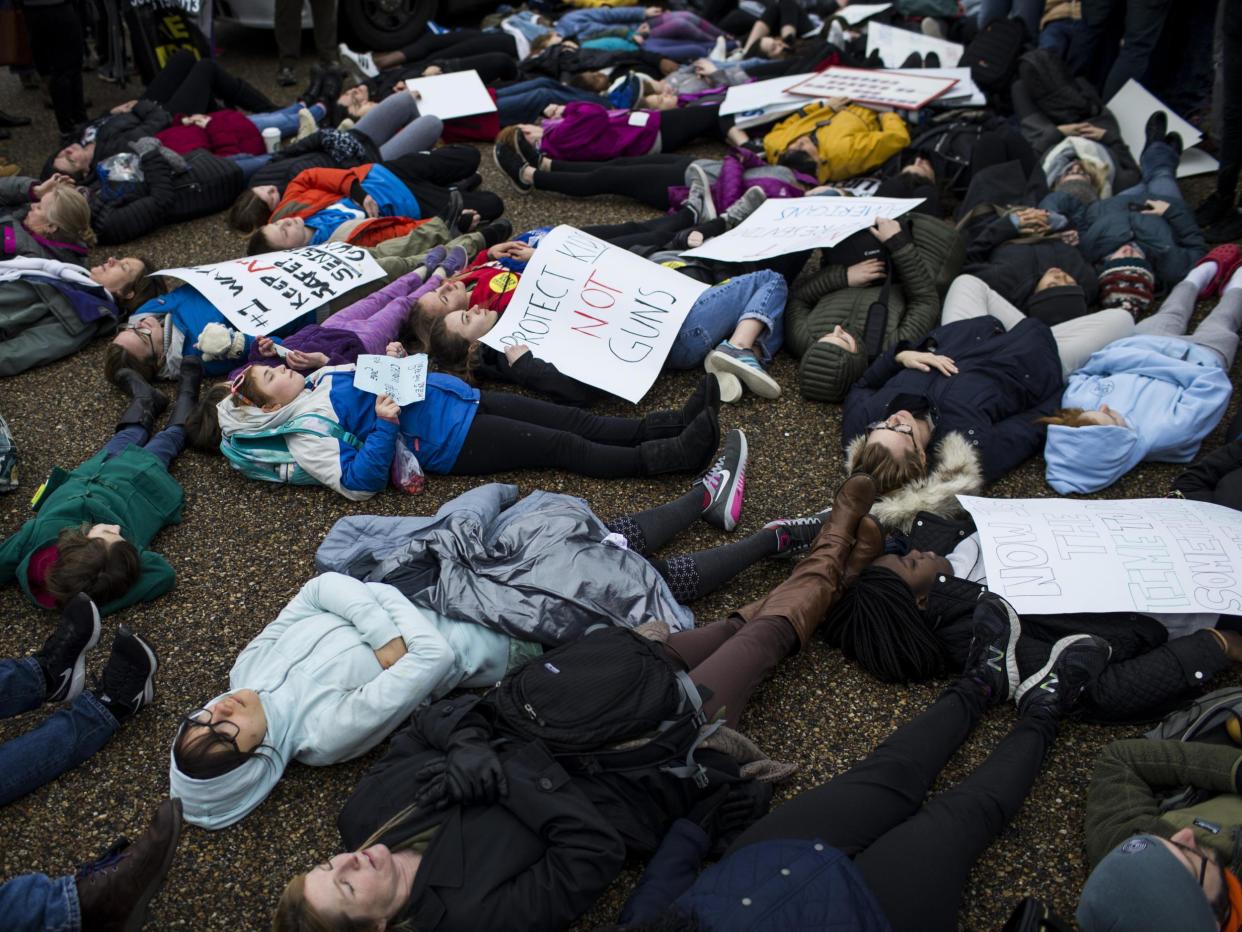Florida officials can be removed from office and fined $5,000 for attempting to enforce stricter gun controls

While Florida's lawmakers refuse to consider banning assault weapons following the Parkland school shooting, some local politicians say they want to act.
But they are powerless to do so because of state legislation which threatens mayors with removal from office if they attempt to enforce stricter gun controls.
They can also be fined $5,000 (£3,600) under the law, which applies to local government staff as well as elected officials.
Florida’s statute gives the state sole authority to regulate firearms.
Towns, cities and counties have been banned from making their own gun laws since the 1987, but it was only seven years ago that the state’s Republican-controlled House introduced the threat of penalties.
Since 2011 any “knowing and wilful” attempt to enforce local gun regulations instead of state firearms law can be punished with removal from office or dismissal, as well as civil fines.
The penalties apply to all elected politicians and appointed local government officials, as well as the heads of any administrative agencies involved.
Authorities and officials can also be sued by gun owners whose rights under state laws have been “violated” by local regulations, and face damages of up to $100,000. Mayors and officials are barred from using public funds to fund their legal fees, meaning they could be landed with potentially unlimited costs.
“I think it’s outrageous,” Philip Stoddard, the Democrat mayor of South Miami, told the Miami Herald. “Why should the cities be prohibited from protecting their citizens?”
Firearms law is one of many areas where Florida state legislation overrides local regulations. But gun rules are thought to be the only section of the statute where ignoring state law lead to such penalties.
“It goes far beyond simply saying we can’t regulate the sale and use of guns at the local level,” said Tallahassee’s Democrat mayor Andrew Gillum earlier this year.
“It says not only can’t you do that, but if you do do that, there are going to be severe penalties levied against you as an individual.”
Two weeks before 17 people were killed in the shooting at Marjory Stoneman Douglas High School, Mr Gillum won a legal battle in a federal court against two gun advocacy groups which claimed a decades-only ban on using firearms in the city’s public parks violated state law.
He was represented pro bono because Florida’s statute prohibited him from using city funds to mount the legal defence.
Lawmakers who backed the introduction of the penalties in 2011 argued it was important for Florida to have blanket firearms regulations across the state.
But Mr Gillum told City Lab the penalties were ”intended to send a strong chilling effect to local government: ‘Don’t you even dare.’”
“We can’t do a damn thing at the city or county level, or we will be punished,” said Sally Heyman, a former state lawmaker. “I’ve been there with the deaf ears in Tallahassee.”
On Tuesday, the Florida House voted 36-71 against a motion to consider legislation to outlaw assault rifles and large capacity magazines.
The vote came as members of Congress, state legislators, governors and student survivors of the Parkland shooting called for tougher gun control laws. Students from the high school had travelled to the State House in Tallahassee to watch the vote and looked on from the gallery as their lawmakers voted against considering the bill.
Democratic State Representative Carlos Guillermo Smith, who sponsored the bill, said it was “shameful” lawmakers refused even to discuss it.

 Yahoo News
Yahoo News 
